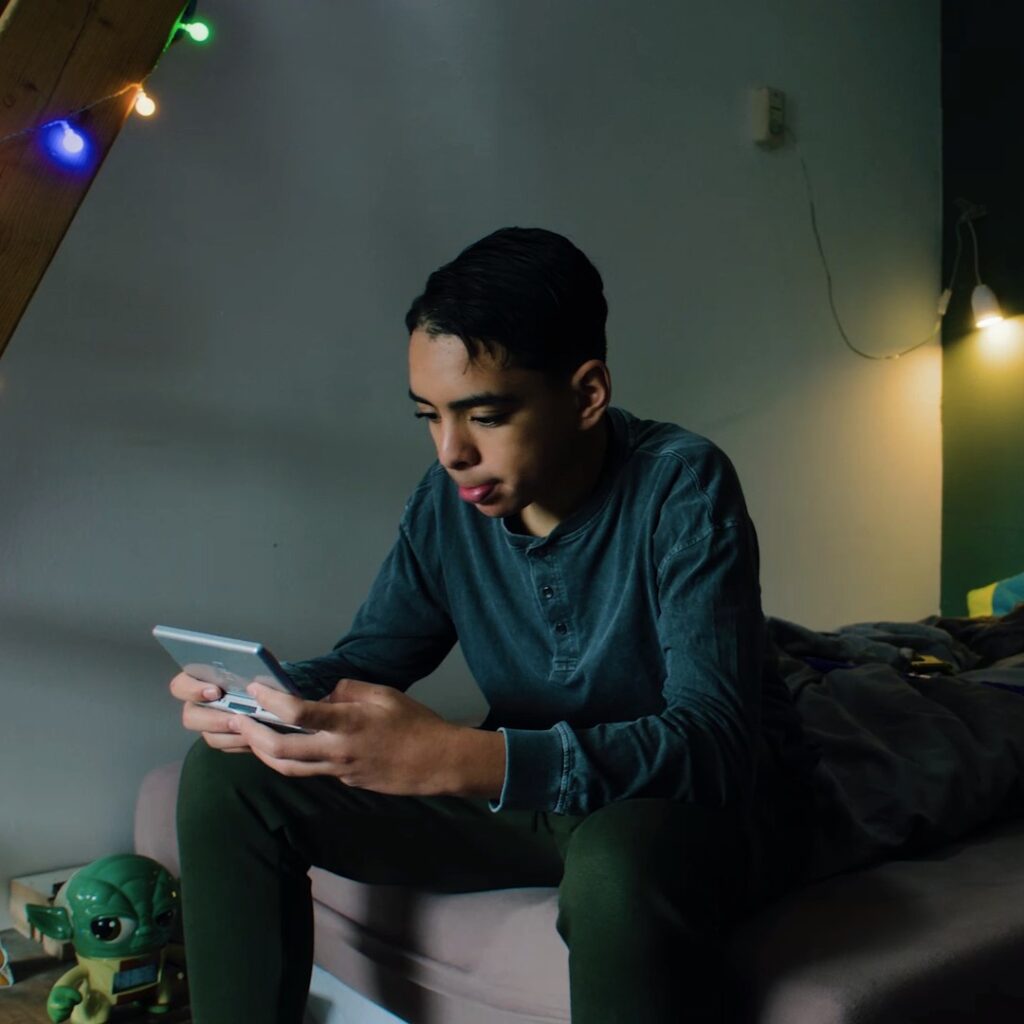Children with their first crush are endlessly on WhatsApp, exchange photos and videos of each other and their day, and constantly tag each other in memes that they find funny. This is how love seamlessly transitions from the classroom, gym or neighbourhood to their phones.
This all starts in as early as their primary school years. Rutgers, co-initiator of the Dutch Spring Fever Week, calls this digital puberty, which starts between ages 10 and 12 for most children. How can we best deal with this as parents? Here are five tips!
- Openness – When you suspect that your child is in love, the first step would be to ask them about it. Especially when love has mainly bloomed online, it is important to have some idea of who your kid is in touch with. Ask about who they are texting when they appear to have heart eyes behind their phones. Is it still unclear who this person is after enquiring several times? Explain to your kid that you want them to share this with you so you can be sure that this person is really who they claim to be.
- Positivity – Instead of focussing too heavily on the dangers, it helps to have a positive attitude as a parent. Celebrate falling in love, and acknowledge that the online world is also a place for growth and fun. By approaching online love positively, kids will have less fear of judgement, and feel safer to share their experiences and ask questions.
- Maintain screen time boundaries – When we are in love, we want to keep speaking to the person. That is how online love leads to whole days spent texting your crush. Is your child in love? Explain to them that the same screen time agreements apply as before. Too much screen time is unhealthy, and being in love is not an exception 😉
- Autonomy – Love knows no limits. Give your child the opportunity to have a certain degree of autonomy in experiencing being in love, without completely blocking them from the online world. Is it a love that has bloomed exclusively online with someone that they haven’t met. Inform your child that you have their back in this, and that you would like to know whenever a next step is being taken (such as video calling or meeting in person).
- Share your love story – online or offline, you have also likely experienced being in love before. Love has always been, and still is, a fascinating topic. Sharing your own love story can be a nice way to show your child that it is a fun topic to talk about, and that they are not alone in experiencing it.
All in all, love is a special experience that our kids will undoubtedly learn a lot from, whether online or offline. Are you looking for a deep dive into your child’s and your own online resilience? ChatLicense helps children and their parents navigate the online world!





